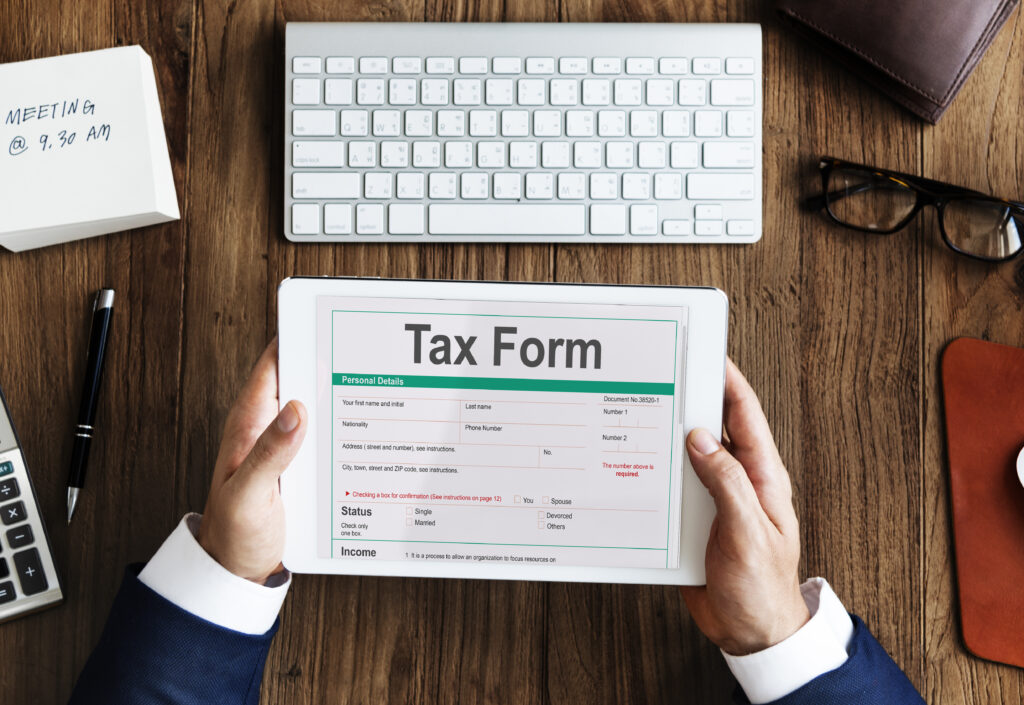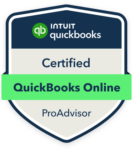Are you confident that your small business is managing taxes effectively? Tax season can be stressful for many small business owners, especially with the complexities of deductions, deadlines, and compliance rules. However, with the right knowledge and planning, tax management can be turned from a headache into an opportunity.
Tax tips for small businesses are essential for keeping your business on the right side of the law while maximizing deductions that can save you money. You can significantly reduce your taxable income by understanding the available deductions—such as home office expenses, marketing, and travel expenses. Additionally, staying compliant with ever-changing tax laws is crucial to avoid penalties that could harm your business’s financial health.
In this article, we’ll dive into the most valuable tax strategies for small business owners, providing you with simple yet effective ways to manage your taxes. From learning about key deductions to understanding the importance of organized bookkeeping services, this guide will help you stay compliant and make the most of every tax season.
Are you ready to take control of your small business taxes and save money in the process? Let’s explore the essential tax tips for small businesses that will help you do just that!
Is Your Small Business Prepared for Tax Season?
Tax compliance is a crucial aspect of running a small business, but are you truly prepared to meet all the legal requirements? For many small business owners, the tax filing process can be overwhelming, leading to missed deadlines or overlooked regulations.
Understanding the importance of tax compliance is essential for protecting your business from financial risks and potential penalties.
Statistical Insights on Non-Compliance
Small businesses are particularly vulnerable to tax penalties due to non-compliance. According to the IRS, around 40% of small businesses incur penalties each year for errors like late payments or inaccurate filings. The average penalty can range between $400 and $800 per business, depending on the size and complexity of the error. These fines are not only avoidable but also put unnecessary strain on a business’s cash flow.
Furthermore, recent trends show that small businesses are increasingly subject to tax audits. While only about 2% of small businesses get audited annually, the number has risen due to tax law complexities and increased IRS scrutiny. Staying compliant with all the regulations ensures your business avoids audits, which are time-consuming and stressful.
Common Tax Challenges for Small Businesses You Should Know

Trying to solve a problem requires the identification of the main issue. Therefore, you must identify these challenges before you tackle all tax tips for small businesses. Read about them here to ensure an easy and effective start for your business.
1. Navigating Complex Tax Regulations
One of small business owners’ most significant challenges is keeping up with constantly changing tax regulations. Tax laws vary by state and industry, and frequent changes can create confusion.
For example, the introduction of the Tax Cuts and Jobs Act (TCJA) in recent years altered deduction limits and tax rates, making it more difficult for small businesses to know which rules apply to them. Following regulation updates can lead to compliance, and filing based on outdated information could result in penalties or audits.
2. Missed Deadlines & Improper Filings
Tax deadlines can easily sneak up on small business owners, especially those managing multiple tasks without a dedicated accounting staff. Missing a deadline, even by a day, can lead to penalties. For example, the IRS penalizes businesses that fail to file Form 941 (used for reporting payroll taxes) on time.
Not only does this result in a financial hit, but it also triggers additional scrutiny of future filings. In addition to deadlines, improper filing of paperwork—such as incorrectly categorizing deductions or misreporting income—can create red flags for tax authorities.
3. Inadequate Record-Keeping
Maintaining accurate records is critical to staying compliant, but it’s also one of the most overlooked areas. Poor documentation of business expenses, income, and employee payments can lead to errors during tax filings.
In some cases, businesses lose out on deductions simply because they cannot provide the proper receipts or documentation. In the event of an audit, this lack of records can result in back taxes, penalties, and interest
6 Key Tax Deductions for Small Businesses: Maximize Your Savings
Knowing which tax deductions you qualify for can save you a lot of money as a small business owner. Deductions reduce your taxable income, meaning you pay less in taxes. The key is to understand the various types of deductions available and how to calculate them.
Below, we’ll list some of the most common and valuable tax deductions small business owners can take advantage of.
1. Home Office Deduction
If you operate your business from home, you may qualify for the home office deduction. To be eligible, your home office must meet two main criteria:
- Exclusive & Regular Use: The space must be used solely for business activities. If your home office doubles as a guest room or personal space, you cannot claim this deduction.
- Principal Place of Business: Your home office must be the primary location where you conduct most of your work.
There are two ways to calculate the home office deduction:
- Simplified Method: Deduct $5 per square foot of your home used for business, up to 300 square feet.
- Regular Method: Calculate the percentage of your home used for business and apply it to actual expenses like rent/mortgage, utilities, and maintenance.
This deduction can significantly lower your taxable income if you meet the requirements.
2. Marketing & Advertising Costs
Marketing and advertising are essential for growing your business, and the good news is that most of these expenses are tax-deductible. Whether you’re investing in:
- SEO and digital marketing campaigns,
- Traditional advertising methods like print ads billboards, or
- Online promotions, such as Facebook or Google ads,
you can deduct these expenses in full. Not only do they help promote your business, but they also lower your taxable income.
Pro Tip: Even business cards, brochures, and promotional materials qualify as deductible marketing expenses. Be sure to keep receipts and documentation of all advertising costs to claim this valuable deduction.
3. Professional Services
Hiring professionals like attorneys, accountants, and consultants can benefit your business and also save you money come tax season. Fees paid to these professionals are fully deductible if the services relate to your business. For example:
- Legal Fees: The costs of consulting a lawyer for a contract review or business-related legal advice are deductible.
- Accounting Services: Hiring a CPA to handle your taxes or maintain your books is considered a legitimate business expense.
- Consultants: You can also deduct any fees paid to business consultants to improve operations, marketing strategies, or finances.
These deductions are beneficial for small business owners who rely on expert advice to grow and manage their businesses.
4. Business Travel Expenses
Many of your travel-related expenses are tax-deductible if you travel for business purposes. However, it’s essential to differentiate between business and personal travel to ensure you only deduct legitimate business expenses. Here’s what you can deduct:
- Airfare and Transportation: Travel-related transportation costs, such as plane tickets or rental cars.
- Lodging: The cost of hotels or other accommodations during your business trip.
- Meals: You can deduct 50% of meal costs incurred during business travel.
To qualify, the travel must be necessary for your business, and you must keep detailed records, such as receipts, itineraries, and notes about the purpose of the trip.
5. Vehicle Expenses
If you use a vehicle for business purposes, you can deduct either the actual vehicle expenses or the standard mileage rate:
- Actual Expenses Method: Deduct costs like gas, maintenance, insurance, and depreciation related to the business use of your vehicle.
- Standard Mileage Method: The IRS provides a standard mileage rate (currently 65.5 cents per mile for 2024), which you multiply by the number of miles driven for business.
Keep a mileage log and records of vehicle-related expenses to claim this deduction accurately. If you use your car for both personal and business purposes, only the portion of costs related to business can be deducted.
6. Insurance Premiums
Another valuable deduction for small business owners is the cost of insurance premiums. This includes:
- Liability Insurance: Protecting your business against lawsuits or claims.
- Property Insurance: Coverage for your office space, equipment, or business property.
- Workers’ Compensation: Workers’ comp premiums are deductible if you have employees.
Any insurance directly protecting your business can be written off on your taxes. This helps reduce the burden of monthly premiums while keeping your business safe from unforeseen risks.
3 Advanced Tax Strategies for Small Businesses

Small business owners can significantly reduce their tax burden through advanced tax strategies. By strategically managing significant business expenses, retirement plans, and employee benefits, you can reduce taxable income while strengthening your business’s financial future. These strategies not only help with tax savings but also improve overall business management.
Let’s explore three critical advanced tax strategies that small businesses should know to maximize their savings and maintain long-term financial health.
1. Depreciation of Business Assets
When your business invests in large, expensive items like office equipment, machinery, or even furniture, you don’t have to deduct the entire cost in the same year you purchased them. Instead, you can take advantage of depreciation, which allows you to spread the cost of these assets over several years. This helps lower your taxable income for multiple tax years, providing steady savings.
Depreciation allows you to recognize the wear and tear of an asset, meaning that over time, the asset’s value decreases. For example, if you buy a $10,000 piece of machinery, you can depreciate it over five years, deducting $2,000 annually. This not only spreads out the cost but also ensures your business benefits from ongoing tax reductions.
Additionally, under Section 179 of the IRS tax code, small businesses can choose to deduct the entire purchase cost of certain qualifying assets in the year they are bought, rather than depreciating them over several years. This is particularly useful for businesses that make large purchases and want to immediately lower their tax liability.
2. Retirement Contributions
Setting up a retirement plan is another powerful tax-saving strategy for small businesses. Contributions to retirement accounts such as a SEP-IRA (Simplified Employee Pension Individual Retirement Account) or a Solo 401(k) allow you to reduce your taxable income while saving for your future. Not only do these plans provide tax breaks, but they also offer a way to attract and retain employees by providing a valuable benefit.
With a SEP-IRA, business owners can contribute up to 25% of their income, or up to a certain limit set by the IRS each year. These contributions are tax-deductible, meaning they lower your taxable income. A Solo 401(k) works similarly, allowing sole proprietors and small business owners to contribute both as an employer and an employee, thus maximizing retirement contributions and tax benefits.
Investing in retirement plans reduces current tax liabilities and secures one’s financial future, making it a smart long-term strategy.
3. Employee Benefits
Offering employee benefits like health insurance or retirement matching plans can help you save on taxes while improving employee satisfaction and retention. The costs associated with providing benefits such as healthcare coverage or employee wellness programs are fully deductible as business expenses. This means you can reduce your taxable income while offering valuable benefits that improve workplace morale and productivity.
For example, if you provide health insurance for your employees, you can deduct the total cost of their premiums as a business expense. Additionally, offering benefits like life insurance, disability insurance, or even dependent care assistance can be deducted, giving your business a tax break while taking care of your employees.
By providing these benefits, you lower your business’s tax burden and create a positive work environment, leading to better employee retention and higher productivity.
Tax Compliance & Record-Keeping Best Practices for Small Businesses
Maintaining proper tax compliance is vital for small businesses, not just for avoiding penalties but also for maximizing deductions. One of the best ways to stay compliant is to implement effective record-keeping practices. Proper documentation, expense categorization, and automation can simplify your financial tasks and ensure smooth tax filings.
Let’s explore how to implement these practices in your business.
1. Categorize Expenses
Using accounting software like QuickBooks or Xero to categorize expenses is crucial for staying organized throughout the year. By properly categorizing your spending—whether it’s marketing, rent, or office supplies—you can track where your money is going and easily find deductions when tax season arrives. This also allows you to spot areas where you may be overspending or areas where you can cut back. Key categories include:
- Business supplies
- Travel expenses
- Advertising and marketing
- Utilities
Automating this through accounting software ensures that each expense is accurately recorded, saving you time and reducing the risk of errors.
2. Maintain Proper Documentation
Keeping track of all business-related receipts, invoices, and financial documents is a must for accurate tax filings. Best practices include:
- Digital storage: Use tools like Expensify or Receipt Bank to scan and store receipts.
- Consistent record-keeping: Document all business expenses promptly to avoid losing important receipts or forgetting details.
- Organized filing: Store documents in an organized manner, categorized by expense type or date, to make future audits or tax preparation easier.
This documentation is crucial, especially in the event of an audit, where proof of expenses will be required.
3. Regular Reconciliation
To avoid surprises during tax season, it’s essential to reconcile your business’s financial records regularly. This means comparing your accounting records with your bank statements to ensure accuracy. A good rule of thumb is to perform weekly or monthly reconciliations to:
- Identify & correct errors early.
- Track outstanding invoices or unpaid bills.
- Ensure your financial records are always up-to-date.
This practice reduces tax-season stress by preventing last-minute rushes to gather and verify financial data.
4. Automating Bookkeeping
Automating your bookkeeping processes can save time, reduce errors, and ensure consistency. Tools like Xero, QuickBooks, or FreshBooks can automate tasks like invoicing, payroll, and tracking expenses. Key benefits include:
- Accuracy: Automation reduces the risk of manual data entry errors.
- Efficiency: Saves hours spent on repetitive tasks like reconciling transactions.
- Real-time insights: Get immediate updates on your business’s financial health, allowing for better decision-making.
By automating your bookkeeping, you streamline your tax preparation and ensure that your financial records are always accurate and up-to-date.
Seeking Professional Help: When Should Small Businesses Consider It?
Managing small business taxes can become complicated, especially as the business grows. Sometimes, seeking professional help from a CPA or tax advisor becomes essential. Hiring a professional ensures compliance and maximizes tax savings if your business faces complex tax situations—such as multi-state tax filings, frequent audits, or navigating new tax regulations.
Furthermore, Tax advisors can offer tailored advice and help you identify deductions or credits you might otherwise miss.
1. When to Hire a CPA or Tax Advisor?
Small businesses should consider hiring a CPA when facing:
- Complex tax returns: If your business has significant assets, multiple income streams, or operates in different locations. This is also a major part of this list of tax tips for small businesses
- IRS audits: Professional help is invaluable in navigating audits or addressing potential discrepancies.
- Tax strategy planning: CPAs can help create long-term strategies to minimize your tax burden year after year.
2. Outsourcing Bookkeeping
Outsourcing bookkeeping is another option for small businesses that want to save time and ensure accuracy. An outsourced bookkeeping company can help automate tax compliance by managing invoicing, sales tax, and expense tracking. Outsourcing allows you to focus on running your business while professionals manage your financial records.
This improves efficiency and reduces the risk of errors that could lead to tax penalties. By seeking professional help, small businesses can remain compliant, avoid costly mistakes, and focus on what truly matters—growing the business.
In Conclusion
Tax compliance and maximizing available deductions are crucial for the financial success of any small business. By staying on top of your expenses, keeping detailed records, and taking advantage of key deductions like home office costs, marketing expenses, and professional services, you can reduce your tax burden and keep more of your hard-earned income. Failing to do so can lead to costly penalties and audits.
To ensure you’re making the most of every opportunity, consult with a tax professional and keep your records organized throughout the year. For more expert advice on tax tips for small businesses and bookkeeping solutions, visit LUCI Financial Solutions for tailored guidance that fits your small business needs.










